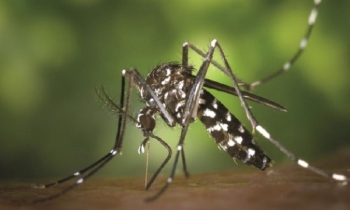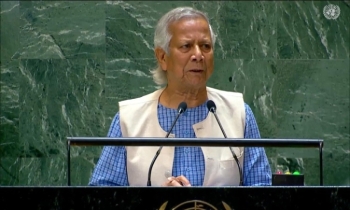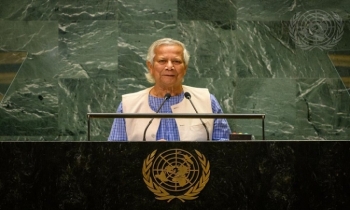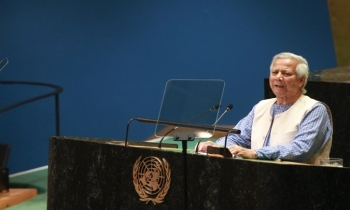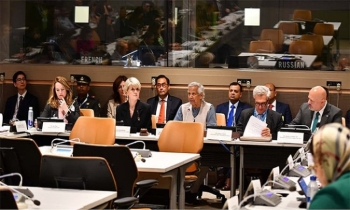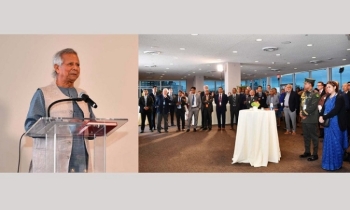Air pollution cuts Dhaka dwellers’ life expectancy by 7.7 years: Study
UNB || BusinessInsider

File photo
Air pollution is reducing the life expectancy of the residents of Dhaka, one the most polluted cities in the world, by 7.7 years, says a new study.
The residents of Dhaka could live 7.7 years longer while the average life expectancy in Bangladesh would have been 5.6 years higher if pollution concentrations could have been complied with the World Health Organization (WHO) guideline, said an analysis of data from the Air Quality Life Index, conducted by the Energy Policy Institute at the University of Chicago (EPIC).
The study finds that particulate pollution cuts global life expectancy by nearly 2.2 years.
Bangladesh, known as one of the most densely-populated countries in the world, has been struggling with air pollution for a long time.
In many cases, Dhaka, the capital of Bangladesh, is often found to be the most polluted city in the world in global indices.
Particulate matter pollution continues to rise in Bangladesh. Since 1998, the average annual particulate pollution has increased by 15.3 percent, cutting 0.9 years off the lives of the average Bangladesh residents over the years, it said.
In each of the 64 districts, the levels of particulate matter were found to be at least three times higher than the WHO guidelines.
The most polluted areas of the country are Rajshahi and Khulna divisions as the average residents are exposed to pollution that is more than seven times of the WHO guidelines, reducing life expectancy by more than six years, it added.
to the study, Bangladesh, India, Nepal and Pakistan account for nearly a quarter of the global population and consistently rank among the top five most polluted countries in the world.
As a result, South Asia accounts for 60 percent of the person-years that are expected to be lost globally due to pollution levels exceeding the WHO guidelines.
The average life expectancy across these four countries will be 5.6 years higher if pollution concentrations are complied with the WHO guideline.
In each of these countries, the impact of air pollution on life expectancy is substantially higher than that of other large health threats. Smoking, for instance, reduces life expectancy in these countries by as much as 1.8 years; unsafe water and sanitation by as much as 1.2 years; and alcohol and drug use by about a year of lost life years.
New data from the AQLI underscores the health threat of a world without policy action. Unless global particulate air pollution is reduced to meet the WHO guidelines, the average person is set to lose 2.2 years off their lives. The residents of the most-polluted areas of the world could see their lives cut short by 5 years or more.
The average global citizen is exposed to particulate pollution concentrations of 32 µg/m3—over 3 times the WHO’s guideline of 10 µg/m32. If this level of particulate pollution persists, the health consequences of air pollution could shave 2.2 years off global life expectancy compared to a world in which all countries met the WHO guidelines.
other words, permanently reducing air pollution to the WHO guideline could increase global average life expectancy from roughly 72 to 74 years, and in total, the world’s population could gain 17 billion life-years.
Measured in terms of life expectancy, the ambient particulate pollution is consistently the world’s greatest risk to human health.
First-hand cigarette smoke, for instance, reduces global average life expectancy by about 1.8 years. Alcohol use reduces life expectancy by 7 months; unsafe water and sanitation, 7 months; HIV/AIDS, 4 months; malaria, 3 months; and conflict and terrorism, just 18 days. Thus, the impact of particulate pollution on life expectancy is comparable to that of smoking, twice that of alcohol and drug use, three times that of unsafe water, five times that of HIV/AIDS, and 29 times that of conflict and terrorism.

